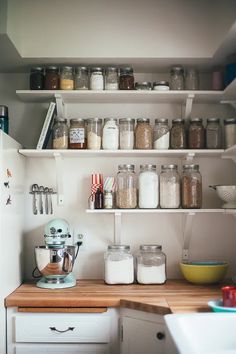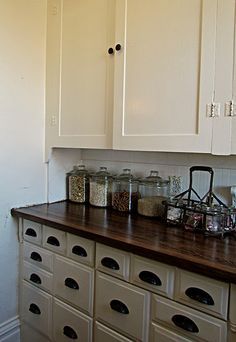What To Do With an Old Kitchen?

Kitchen equipment, tools, and gadgets are the most expensive to purchase of all home products. They’re also the most prone to wear and tear due to the fact that they’re used often, at least multiple times every day. But how can you get rid of them when it’s time to replace them—either because they broke or because you want to upgrade?
While most homeowners have a strategy in mind when buying a new refrigerator or creating a new set of kitchen islands, such as where to put it and how to care for it, they often have no idea what to do with it once it’s reached the end of its useful life. If you’re a homeowner, you’ve likely had your fair share of this as well.
The Golden Rule: Never, although it is a typical occurrence, dumping your used kitchen equipment in a landfill should be your absolute last resort. The harmful chemical components of most kitchen equipment, such as refrigerators, ovens, stoves, induction cookers, and dishwashers, must be appropriately disposed of.
When discarded in landfills, these appliances can leach toxic chemicals into the earth, water, and air. Flame retardants, mercury, chromium, lead, and other toxic compounds are among them.
Used kitchen equipment should be disposed of with caution to safeguard your household and the environment. The good news is that there are alternatives to dumping them in a landfill.
Consider the following five ideas for repurposing your outdated kitchen appliances:
No.1 Reuse, repurpose or upcycle
Have you considered giving your kitchen things a new use before deciding to get rid of them? You may still repurpose or reuse your kitchen items into something helpful or meaningful if you want to get the most out of them.
Repurposing and recycling kitchen things necessitate a creative and perceptive mind. Here are a few examples of how you may go about it:
Transparent glasses and jars may be turned into lights.
Use your refrigerator as a two-in-one cooler and table in the backyard for outdoor activities.
An old wooden cutting board may be used to make a phone or tablet holder. Make pens, stationery, Kleenex, money, and tiny trinkets containers out of mason jars.
Make shoe storage out of your old kitchen cupboards.
No.2 Make a donation.
If the old kitchen equipment you’re replacing is still functional or only requires minor repairs and may be used by someone else, your best choice is to donate it.
To find a new home for your used kitchen equipment, start by offering it to family, close friends, and neighbors who might find it beneficial. You may also put them on the internet and specify your location to see if anyone in the area needs them. If there are any homeless people in your region, it’s also a good idea to make a contribution to them.
Numerous groups collect appliance contributions in addition to donating them directly to others. They’re only a phone call away, and they’ll generally come to your house and take up your used equipment.
No.3 Waste Disposal by Professionals

Kitchen furniture and appliances are designed to survive for several years. After they’ve reached the end of their useful life, you’ll have no alternative but to discard them.
Damaged or unrepairable kitchen appliances, on the other hand, are no excuse for not properly disposing of them.
Kitchen appliances, as previously said, require particular forethought and care while being disposed of.
When it comes to getting rid of home debris, especially kitchen equipment and furniture, a professional rubbish removal service is your best bet. They’ve been taught to appropriately manage hazardous garbage without generating any legal or environmental problems.
Make sure your kitchen equipment is ready for disposal before calling in the professionals. Make a list of everything you want to throw away to ensure you don’t forget anything. Finally, be sure to empty and clean them properly before storing them in a convenient location in your home.
No.4 Make a profit
If you’re looking for a quick buck and your old kitchen equipment is still in decent shape, you may consider selling it instead. If you’ve taken good care of your kitchen equipment and want to update it but don’t have the funds, this is a great option.
However, before you put them up for sale, you should make an effort to restore or enhance the item’s appearance so that it seems presentable and enticing to potential purchasers. If you’re selling outdated cooking equipment, make sure the surface oil is cleaned as thoroughly as possible.
Here are some other pointers to consider while selling secondhand kitchen equipment on the market:
Include the handbook, warranty card, and any accessories that came with the item if feasible.
Investigate the product to determine an accurate estimate of its resale value, which is typically 20% of the original price.
Join online clubs and forums devoted to kitchen and home remodeling to whittle down your list of potential buyers.
No.5 Doing Business
For some homeowners, especially those with hectic schedules, selling secondhand kitchen equipment might be difficult. Suppose you’re searching to replace your old kitchen appliances. In that case, you could come across stores and manufacturers that will take them back in return for a new one. You’ll save money on your appliance purchase, and your home will be less cluttered as a result.
Suppose you can’t discover any firms that accept trade-ins. After a kitchen makeover, your old kitchen cabinets may no longer serve the most significant function for you. However, they may still be worth something to someone who is also eager to exchange household things that you might find helpful. In that case, you may also sell your kitchen equipment on websites or through social media groups.
Takeaways
As a homeowner, you can help safeguard the environment in a variety of ways that can make a big difference. If your kitchen’s old equipment isn’t as helpful as it once was, it doesn’t have to accumulate dust or end up in the garbage. You can choose to reuse them, find them a new home for free, or sell or trade them to earn or acquire anything. If they’re no longer helpful, consider having them disposed of by a professional garbage disposal company.











